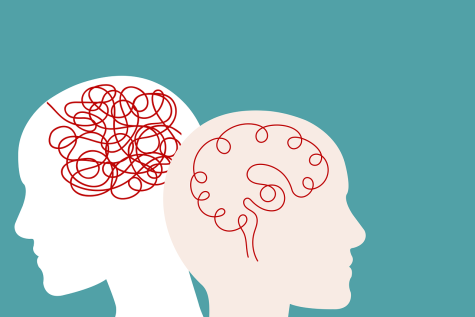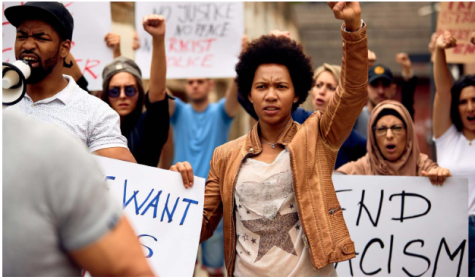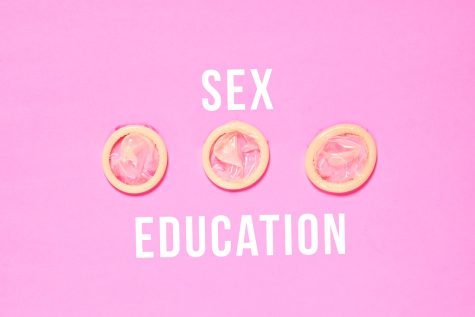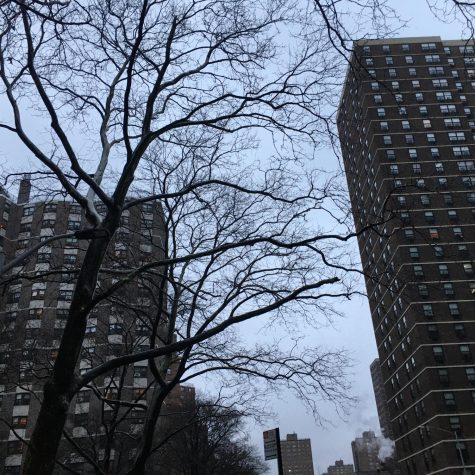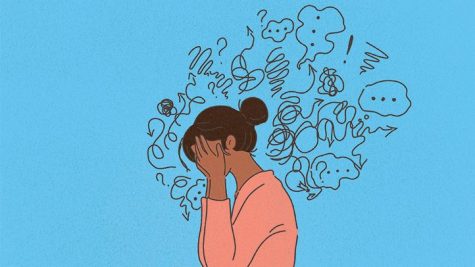The impact of being a Black single mother

https://www.pbs.org/parents/thrive/creating-new-family-traditions-for-the-new-year
Most people, at some point in their lives, have heard that it “takes a village to raise a child.” This phrase is connected directly to the systems that are needed to support young people as they mature into adults. According to single mother Mishka, “If you do not have that support system you will struggle in a way those with one wouldn’t.”
Mishka came to America while pregnant with her daughter right before Covid started in her 20s. Her daughter Tihana is currently a 3 year old, so during the year and half of Covid Mishka struggled to keep up with her child and work while also trying to get a permanent green card/residence. Mishka said, “There were times when it was just me and my child and as a single mother I was always nervous about what I was [going] to do with my child when my work started to pick up.”
“I started working in restaurants during this time,” she continued, “though they weren’t very busy.” During the time of Covid, lots of New Yorkers were let off of work or the jobs were placed online during this massive shut down. This was very hard for those who didn’t have that online option because their jobs had to respect the Covid guidelines.”
Mishka said, “Her father was there financially, but it was difficult to raise a black girl at pivotal parts in her life that were for development because she was isolated, and so was I because I didn’t have that village right by my side nor did I have her father.”
69% of Black girls in America are raised in single parent households largely run by black women. This single parent and Black daughter relationship has had various outcomes on the mother and daughter, impacting both of them psychologically.
Child psychologist Inna says, based on her 30 years of child psychology, she’s noticed that “single parents have to wear many hats; if there’s both they can share those hats [but] it is super hard for one parent to be doing everything and this can take a significant toll on the individual without a strong support system.”
Single mothers within the Black community are becoming very common in comparison to other groups of single mothers in America. They seem to be facing the most significant increase: “In 2021, there were about 4.27 million Black families in the United States with a single mother. This is an increase from 1990 levels, when there were about 3.4 million Black families with a single mother.” The issue with this raise is that “single-mother families are far more likely to experience poverty than two-parent families due to the loss of a partner’s finances, lower maternal educational attainment, and discriminatory wages against women.”
Identifying a single mother might be different for everyone, so who is considered a single mother?
First, the “single” in the description too often leads our society to make huge assumptions about how parenting is or is not occurring. The Census defines a “‘single parent’ as one who is not currently living with a spouse — divorced, widowed, or never married.” However, “Black fathers are rarely depicted as deeply embedded within the family systems they help create. The greater their invisibility as fathers the more problematic the reality for Black families and the Black community.”
So although in some circumstances Black women are defined as single moms, they might not be single; to them a black father can still appear in the picture from a distance. For example, financially a mother could be receiving help, but she would still be considered a single mother if the parents do not coexist under the same roof. This can result in a zeroing down on the impact and failing to address other factors that could contribute to the situation. In these cases, the child may actually have two parents sharing financial responsibility and providing for the child’s basic necessities — even the things the child needs to be able to better themselves — despite the fact that one isn’t living in the household or married to the other. Children of single mothers have various opinions on this living situation.
iSchool junior Habiba Boureima, child of a single mother of 5, says that her mother “doesn’t really have enough time for herself, so she can better herself in life/ as a mother in general,” and Lauren Harper, also a junior and an only child, believes that her mother tries to overcompensate for the lack of maleness. “I think this desire to be a strong Black woman kind of gets in the way of a lot of things. And what I’ve noticed about my counterparts who had their fathers in their lives [is that] their mothers were much softer.” Needing to be strong and wear multiple hats definitely impacts the way of parenting as a Black mother. This creates the healthy emotional and mental aspects to be ignored in certain areas. Not showing kids when you are struggling to do it all on your own prevents you from being able to be vulnerable overall.
There are various opinions on whether a male figure is needed in a Black girl’s life.
Single Mother of 1, Donna Lawrence mentions that “girls need that male figure, whether it’s a father, uncle or grandfather because there [are] things from a male’s perspective I cannot teach.” She “can only speak from [her] experiences” as a single mother. “So yes, a male figure is very important in Black girls’ lives; whether they show up physically, emotionally, or mentally, the absence will show.”
Ischool guidance counselor Lizzette Colón believes “we may see it as a absence of another parent, and it is a big burden on that single parent; however, they are trying to hold it down in many instances, and I find that a lot of time children can go a number of ways based on the parental situation.”
Parental factors do not determine childhood outcome because of the nurture and nature concepts. Nurture is ultimately the¨correlations between environmental factors and psychological outcomes are caused environmentally.¨ Nature is what we think of as pre-wiring and is influenced by genetic inheritance and other biological factors.
Some children may act out because of the feeling of neglect from their single parent, which tends to show in their day to day behaviors. They might look for the attention, love, and nature within other people in their lives. Ms. Colón says that “the parent isn’t thinking about neglecting them but [they] end up getting lost in areas, like maybe school — they might fall behind.”
“Children thrive when they have safe, stable and nurturing environments and relationships, and these conditions and connections can exist in any type of family.”
This environment is not based on a parental situation because this can fully exist in foster homes and with guardians/non biological parents.
So though people might view a family as incomplete without the father, there’s still ways for their environments to be safe, stable, and nurturing. “Unfortunately, or fortunately, the burden of pregnancy is on the woman that’s carrying the baby. And if the relationship was never strong to begin with, he’s not going to stick around,” says Ms. Colón. So building this relationship prior to conceiving/having a child is very pivotal. Especially because of the disadvantages all Black families are facing in America, let alone single Black mothers. If this doesn’t happen Black mothers should make sure they have or build with a strong support system to limit the feeling of the weight of the world being on their shoulders at all times in regards to their children
Mc’Kayla, who is the child of a single mother, believes, “Black girls already have so much against them, so having a strong support system and whatever complete healthy households look like can allow the child to go so many places.”
According to aecf.org, “Compared to kids in married-parent households, children in single-parent families are more likely to experience poor outcomes. While the research is complex, sometimes contradictory and evolving, mounting evidence indicates that underlying factors — strong and stable relationships, parental mental health, socioeconomic status and access to resources — have a greater impact on child success than does family structure alone.” Focusing on these factors as a single can include the parent joining therapy, along with placing their child in therapy with or without them, paying attention to a child’s behavior, and setting boundaries with one another. This relationship impacts the children and parents, especially focusing more on the child.
Ms. Colón says that “children can go different routes. There are two I’ve commonly seen, one is where they become more independent because they saw a single parent doing it all, juggling everything, and that taught them to be and some children become the quiet opposite. Black girls lacking the father figure “never got the direction needed from a father figure, they learn to make up their own survival playbook. This can lead to negative coping skills such as sexual promiscuity, total avoidance of intimacy, isolation, substance abuse, anxiety, and depression.”
Just like single parenting impacts the parent themselves, their children are also heavily impacted by this circumstance. Children at a young age do not fully understand the world around them, especially their parents’ emotional responses so as they develop these skills they may internalize a parent’s behavior ¨can trigger internal suffering in shame and guilt, like an imposter, anxiety, and depression. As well as create conflict and hostility.¨
In order to patch up what we see as disadvantages, Black fathers need to step up. “Fathers who are more involved in their children’s lives provide a sense of security and guidance that can help them develop emotionally and cognitively.” In order for the mothers to not be left feeling stretched too thin or feeling like they have to play superwomen on their own. Yes, these support systems hold importance, but healthy two parent relationships can teach children examples of what a good family dynamic would be.
Without these fathers, “lack of financial resources becomes one of the most common problems in single parenthood. Because they are the sole source of income, single parents often face financial challenges. One parent may have to work longer hours to cover the financial needs of running a household.”
¨The gender gap in pay has remained relatively stable in the United States over the past 20 years or so. In 2022, women earned an average of 82% of what men earned.¨ So regardless of taking on two jobs men are ahead financially
As a single mother, you’ve likely “experienced being at your limit regarding commitments and responsibilities. Daily demands like running errands, cleaning, and cooking still need to be taken care of, although there is only one person to do them. Balancing these and other responsibilities like school pick up and drop off, after-school activities, and work can spiral out of control.”
The stresses vary from mother to mother, so help from another parent may look differently in each situation.
According to Lisa Sewell, a single mom of one, “Fully coparenting with a child’s other parents helps weigh out the expectations; it might not be to the point [that] responsibilities are shared 50/50, but it is definitely no longer 100/0 when no support system is present.” Weighing out responsibilities will reduce stress in the single parent, allowing more quality time with child/children. So how can we step forward to changing this narrative of Black fathers consistently being absent in one way or another? Because they matter in a child’s development whether it’s cognitive or behavioral.
The second parent doesn’t need to be a biological father; there can be a stepfather, brother, uncle, or cousin present that takes on this responsibility. These individuals can play a fatherly role just as effectively because there are many cases where the biological father disappears, is deceased, or even cremated, which is a common trend.
We need our Black fathers present in society. “Addressing systemic racism can help fathers fill this important role and empower them with resources,” and “eliminating government-owed child support debt for fathers unable to pay will go a long way in enabling Black fathers to advance economically and to better provide for their children.”
We must change society’s misguided view of Black fathers as negligent parents and recast them as integral parts of our family and community; this requires presenting positive and culturally affirming narratives of Black fathers in the media — including social media — and through research studies, organizational cultures and legislation. For example, showing ¨complete¨ black families and fathers present in healthy ways throughout the media to encourage this motive. The positive representation can allow society to let go of stigmas and stereotypes surrounding black men as fathers.
There’s no clear-cut solution to this rise in single mothers amongst the Black community that we are seeing because each situation is different. However, iSchool social worker Ms. Vasquez says, “Having two mature, healthy parents who work cooperatively to co-parent their children will always result in good outcomes, whether [they are] living together or separately, regardless of marital status.” She also stressed the importance of parents “making sure [they’re] fully prepared and committed to having a child.” These two ideas can prevent many potential problems in the Black community amongst family dynamics. Some parents are quitting their jobs when realizing they are failing to juggle parenting responsibilities along with work, and they are getting new jobs with “better pay and flexible hours.” This doesn’t solve the problem entirely but it’s how some are starting to address the issue.
Mothers are trying to work on communication skills and ¨dating¨ their children. Scheduling “dates” with your children is equally important so that you can interact on a more personal level and give them your undivided attention.¨ This can help the child feel valued because in single-mother households, weak mother-children relationships are impacting trust, flexibility, and overall mood in the home. This can also help ¨an emotional challenge that single mothers go through, a sense of loneliness and depression¨ because children can fill the void or what society deems as a void and improve the moods of adults. Without some form of change in America, in Black families and the system in place that directly impacts the family dynamics the rise in single mothers will continue to increase.
Single mothers thrive best with strong support systems whether it includes the biological father, father figures or other family members.






